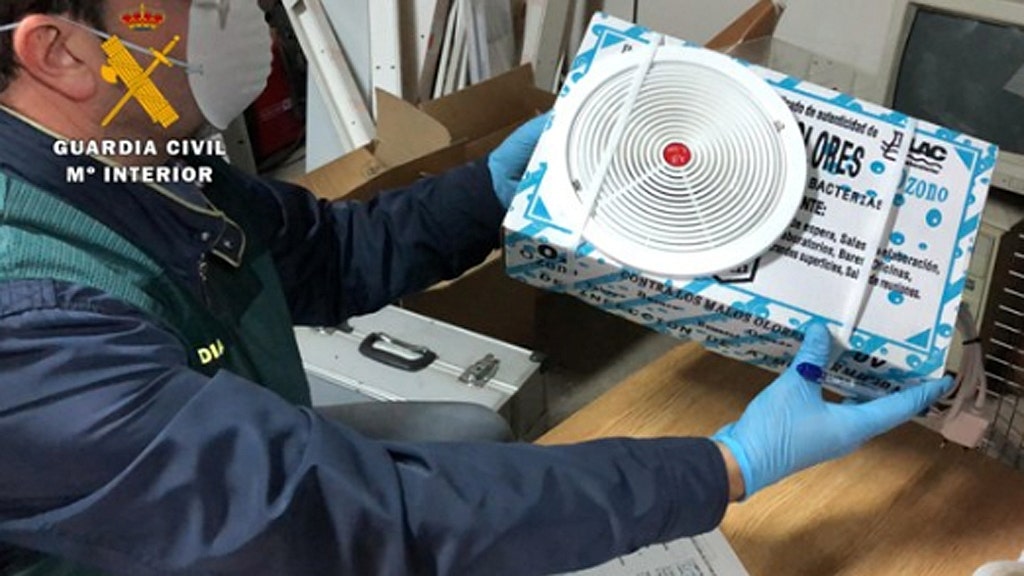Airborne COVID-19 Hospitals Transmission Prevented By Air Filters, Study Finds
[ad_1]
According to a recent study, COVID-19 particles can be effectively filtered from the air to prevent transmission to the hospital using portable air filters and ultraviolet (UV) light sterilization technology.
Nature recently reported that the study, which is currently not peer-reviewed, was the first to demonstrate how portable high-efficiency (HEPA) portable particulate air filters can reduce hospital transmission of the detectable airborne COVID-19 virus. in a real healthcare environment. The search is currently posted on the MedRxiv Preprint Server.
There are still unanswered questions regarding the variant, a scientist said.
(iStock)
COVID-19: WHAT IS THE DELTA PULUS VARIANT?
Researchers noticed during pandemic outbreaks in hospitals that many COVID-19 patients were in healthcare settings without the proper capacity for high-frequency air exchange, noting that previous experiments only investigated the ability to filter air, removing inactive particles in controlled environments, but never in the real world.
Senior intensivist Dr Andrew Conway Morris, a clinician-scientist in critical care medicine at the University of Cambridge, wrote to Fox News: “Before we undertook this study, we knew that HEPA filters could remove small particles, but we weren’t sure if that would work. in the real environment of a COVID-19 service with portable filters. “
From a three-week period between January and February earlier this year, when hospital units reached maximum capacity, they reassigned two COVID-19 hospital units into a general ward and an intensive care unit (ICU).
HEPA filters were installed at fixed locations in both of these environments, capitalizing on their ability to remove smaller particles that hospital personal protective equipment can sometimes lack.
They collected and compared the air samples when the HEPA filters were off, the second week when they were on, and the last week when they were off again.

The new coronavirus was more than twice as contagious at the start of the pandemic than previously thought, according to a new study from Duke University.
(iStock)
PFIZER SAYS HIS COVID-19 VACCINE IS OVER 90% EFFECTIVE IN CHILDREN
However, when Morris “saw the data, we were stunned. [with the] complete removal of SARS-CoV-2 from the atmosphere of the service under test. “
Medium to large-sized COVID-19 particles were in the ward air before the air filtration system was started, but could not be detected after the HEPA filtration system was turned on.
The study focused primarily on measuring medium to large particles, as smaller particles are the least likely to be generated by patients and are not clinically relevant.
There was limited evidence of COVID-19 viral particles in the intensive care unit even initially and only one medium-sized COVID-19 air sample was positive after the filtration system was turned on.
He added: “It was also remarkable how little SARS-CoV-2 we found in the air in intensive care, where of course we all wear the highest level of protection.”
CLICK HERE TO GET NEWS FROM FOX ON SITE
The study suggests that it may be more important to filter COVID-19 from the air in the wards than in the intensive care unit, because fewer COVID-19 particles were found in the intensive care unit initially, due to greater aerosol protection from PPE in the intensive care unit and there is less viral replication in late stages of the disease in patients on the unit.
The study has several limitations: It was conducted for just three weeks in two rooms during a global pandemic with no defined data on the optimal air exchanges required to clear the viruses. Additionally, since there was a large volume of air in the two rooms studied and due to the stability of the viruses in the samples, the authors note that they could not really say that there was actually a COVID virus. -19 in circulation.
Regardless, Morris writes: “Overall I think this study has important implications for infection control, we need urgent studies to confirm that air filtration reduces infections. nosocomial, but from what we found, it appears to be the case. “
[ad_2]

